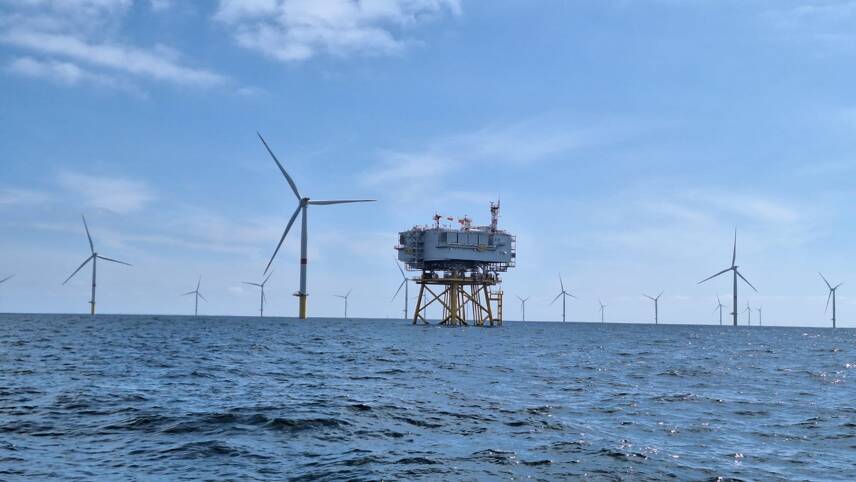Register for free and continue reading
Join our growing army of changemakers and get unlimited access to our premium content

Saint-Nazaire wind farm © M. Douillard
If we look across the Channel to France, all signs are pointing to yes. Atlantic France is on the road to becoming a powerhouse in low-carbon hydrogen production. Businesses who position themselves in this area can benefit from generous funding and excellent infrastructure thanks to the Low-Carbon Industrial Zones (ZIBaC) initiative.
ZIBaC and Atlantic France
Atlantic France’s flagship Nantes Saint-Nazaire Port has been designated as a top-priority zone for decarbonisation by the French government supported by over €4m in funding in part destined for businesses contributing to net zero. ZIBaC aims to decarbonise heavy industries and develop ‘turnkey’ sites for companies invested in energy transition, particularly hydrogen solutions.
Be part of the movement
One such company that has already benefited is Lhyfe, a pioneer in green and renewable hydrogen production through water electrolysis, using production units powered by renewable energy. It recently won a call for proposals initiated by the Port of Nantes Saint-Nazaire to set up a green hydrogen industrial production and distribution facility. Set to be operational by 2028, the scale-up’s renewable hydrogen production site will produce up to 85 tonnes of green hydrogen daily and will boast a 210 MW electrolysis capacity.
Not only is this initiative poised to significantly diminish the carbon footprint of one of France’s major industrial ports, but it also holds the potential to revolutionise the regional energy sector. Additionally, it will contribute to sustainable production practices and open new avenues for international entrepreneurs engaged in renewable energy innovation. The France-based multinational has just announced its first UK project for 20MW green hydrogen plant in North Tyneside, as testament to the potential of cross-channel partnerships.
Why Atlantic France?
Set on the Atlantic coast in close proximity to wind farms, including the country’s first offshore wind farm with a production capacity of 480 MW, the area is poised for further large-scale offshore wind farm projects.
Investments have been secured for a multimodal hydrogen hub as well as in new energy infrastructures. A new pipeline extending from the Atlantic coast to Paris will be linked to the heavy industries of Central Europe and seamlessly integrated into the broader European gas network.
Additionally, carbon capture, utilisation, and storage (CCUS) initiatives are set to pave the way for the development of environmentally friendly e-fuels for both air and sea transport. The GOCO2 project set to launch by 2030 aims to capture 75% of industrial carbon dioxide emissions in Greater Western France by 2050. CO2 will be captured at four industrial sites (Heidelberg materials, Lafarge, Lhoist and TotalEnergies) and piped to the Saint-Nazaire maritime export terminal, with an estimated capacity of 2.6 million tonnes a year by 2030.
The drive for decarbonisation is the fruit of collaborative efforts by local industrial associations, communities, and regional authorities. Atlantic France has proven its commitment to accelerating decarbonisation and the energy transition in this industrial hub.
If you have plans to pioneer the global energy transition and develop solutions that will shape the future of green energy, contact Agathe Corre, Michael Yates or visit Business Solution Atlantic France’s website.



Please login or Register to leave a comment.